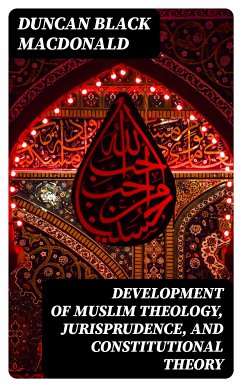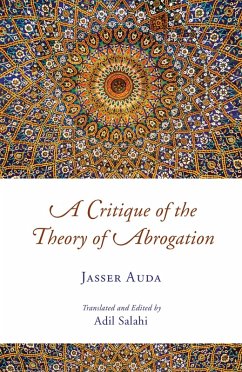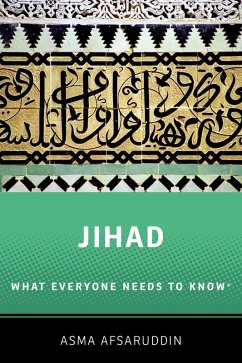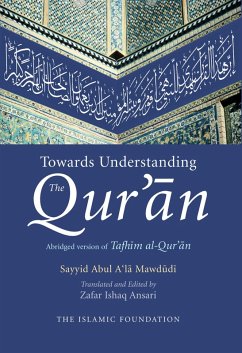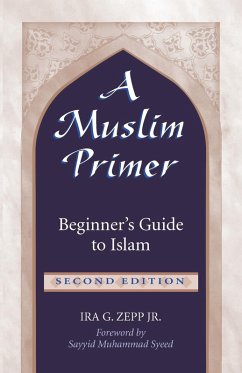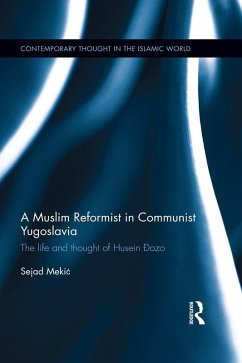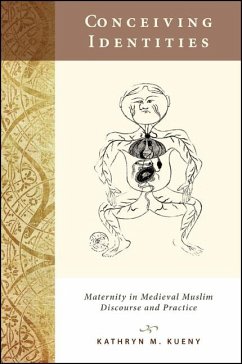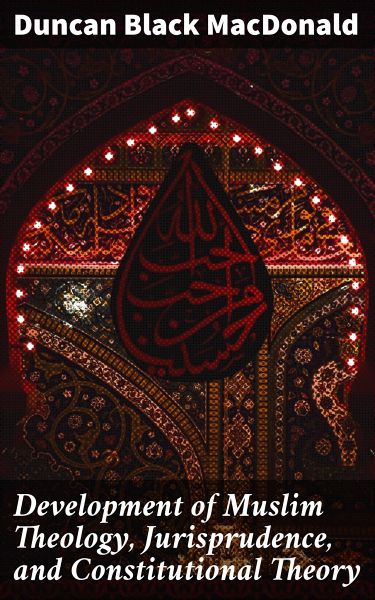
Development of Muslim Theology, Jurisprudence, and Constitutional Theory (eBook, ePUB)
Enriched edition. Exploring Islamic Theology, Jurisprudence, and Constitutional Evolution
Kommentar: Nicholson, Jared / Redaktion: Good Press

PAYBACK Punkte
0 °P sammeln!
In "Development of Muslim Theology, Jurisprudence, and Constitutional Theory," Duncan Black MacDonald explores the intricate evolution of Islamic thought across several centuries. The book delves into the foundational elements of Muslim theology and jurisprudence, identifying the historical, cultural, and social forces that shaped these domains. MacDonald employs a scholarly approach, ensuring rigorous analysis and a critical assessment of the key figures and schools of thought that influenced the trajectory of Islamic legal and theological development. With its blend of historical narrative a...
In "Development of Muslim Theology, Jurisprudence, and Constitutional Theory," Duncan Black MacDonald explores the intricate evolution of Islamic thought across several centuries. The book delves into the foundational elements of Muslim theology and jurisprudence, identifying the historical, cultural, and social forces that shaped these domains. MacDonald employs a scholarly approach, ensuring rigorous analysis and a critical assessment of the key figures and schools of thought that influenced the trajectory of Islamic legal and theological development. With its blend of historical narrative and analytical depth, the work situates itself within the broader discourse of religious and legal studies. Duncan Black MacDonald, a prominent 20th-century scholar, was well-versed in the intersections of Islam, law, and governance. His academic journey, including pivotal research in the Middle East, equipped him with a nuanced understanding of Islamic traditions. MacDonald's engagement with both historical texts and contemporary issues allowed him to articulate a comprehensive vision of how Muslim theological and legal frameworks have evolved, reflecting broader human questions of justice, authority, and governance. This book is essential reading for scholars, students, and anyone interested in the complexities of Islamic thought. MacDonald's insightful analysis not only illuminates the past but also fosters a greater understanding of contemporary Muslim societies. Readers will find themselves engaged in a rich tapestry of ideas that continue to resonate in today's global discourse. In this enriched edition, we have carefully created added value for your reading experience: - A succinct Introduction situates the work's timeless appeal and themes. - The Synopsis outlines the central plot, highlighting key developments without spoiling critical twists. - A detailed Historical Context immerses you in the era's events and influences that shaped the writing. - A thorough Analysis dissects symbols, motifs, and character arcs to unearth underlying meanings. - Reflection questions prompt you to engage personally with the work's messages, connecting them to modern life. - Hand-picked Memorable Quotes shine a spotlight on moments of literary brilliance. - Interactive footnotes clarify unusual references, historical allusions, and archaic phrases for an effortless, more informed read.
Dieser Download kann aus rechtlichen Gründen nur mit Rechnungsadresse in A, B, BG, CY, CZ, D, DK, EW, FIN, F, GR, H, IRL, I, LT, L, LR, M, NL, PL, P, R, S, SLO, SK ausgeliefert werden.




